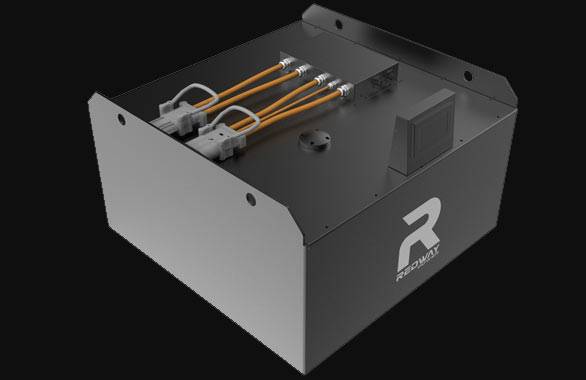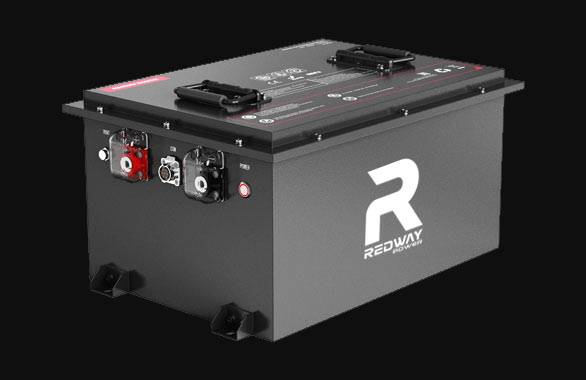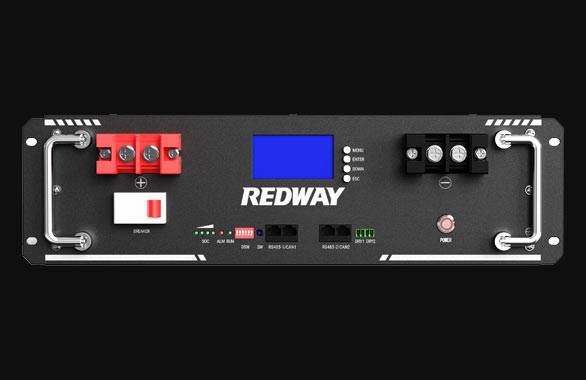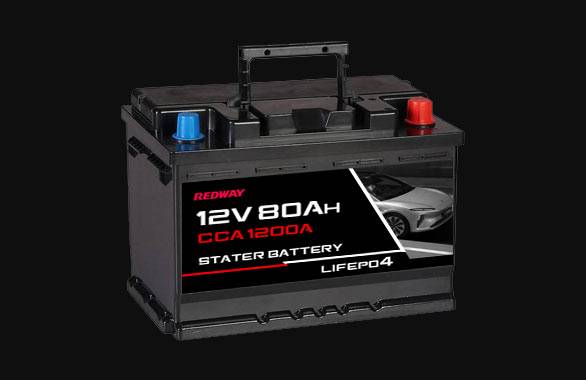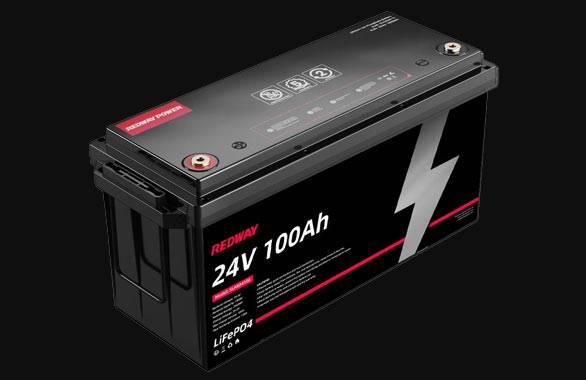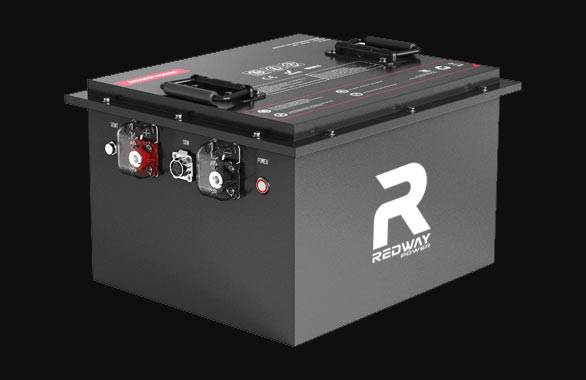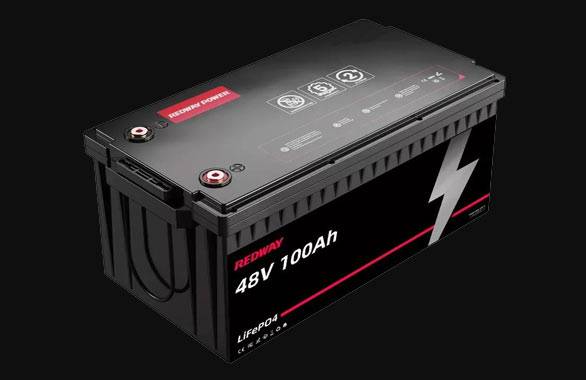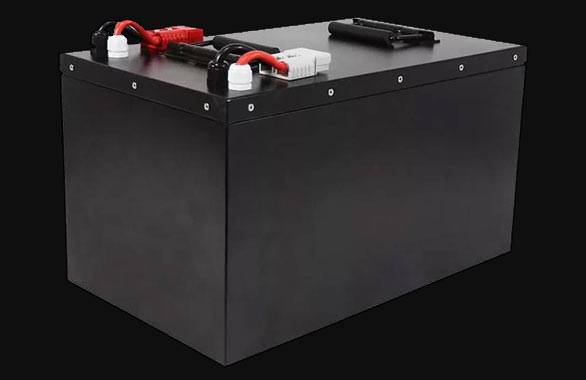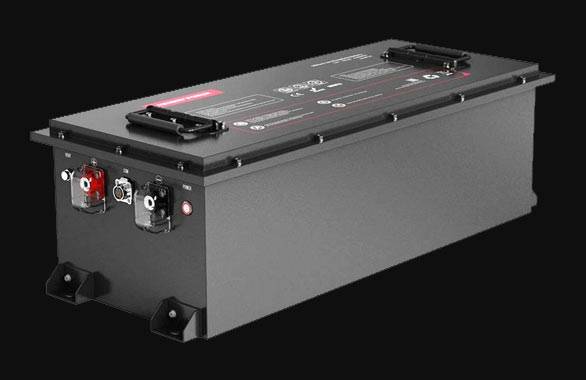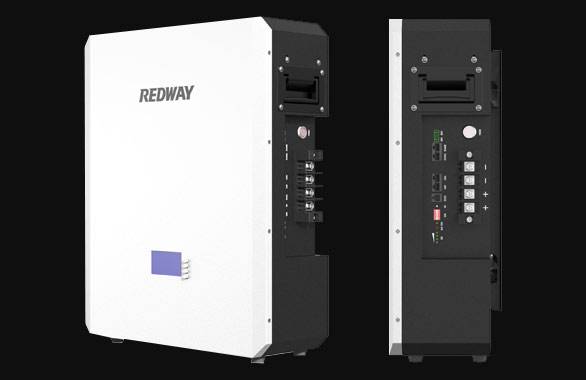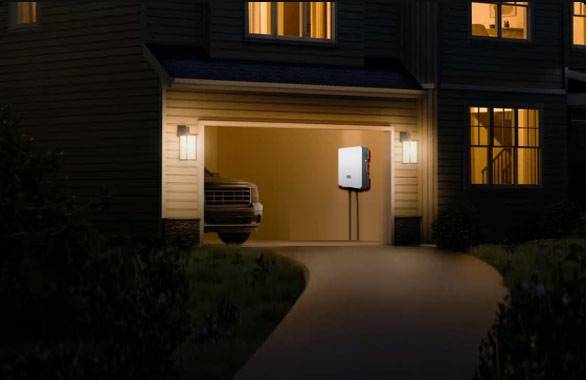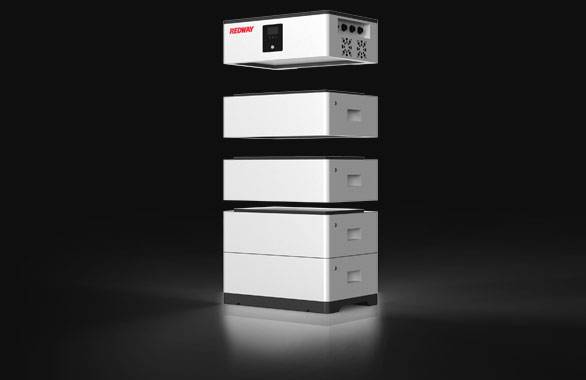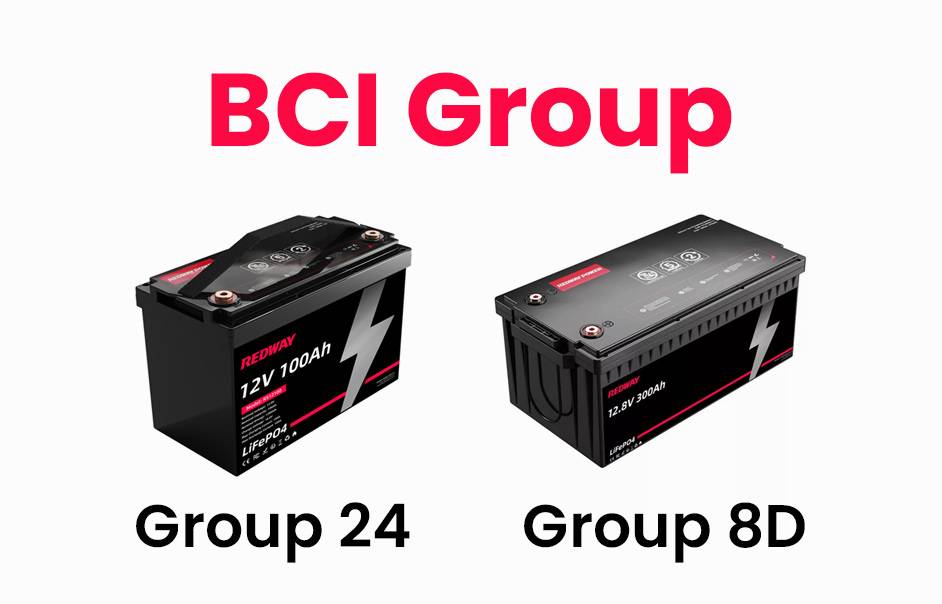- Forklift Lithium Battery
- Golf Cart Lithium Battery
- Rack-mounted Lithium Battery
51.2V 100Ah Rackmount LiFePO4 Battery
8000 times (80% DOD 0.5C)
Optional SNMP for TELECOM - Car Starter Battery
- 12V LiFePO4 Battery
12V 150Ah Lithium RV Battery
Bluetooth App | Self-heating
LiFePO4 | Group 31
UL 1642 | IEC 62619 - 24V LiFePO4 Battery
- 36V LiFePO4 Battery
- 48V LiFePO4 Battery
- 60V LiFePO4 Battery
60V 100Ah Lithium Battery (AGV, AMR, LGV)
Peak Discharge Current 400A
500 x 298 x 349 mm - 72V~96V LiFePO4 Battery
72V 100Ah Lithium Golf Cart Battery
Peak Discharge Current 315A (10S)
740 × 320 × 246 mm - Wall-mounted Lithium Battery
51.2V 100Ah 5kWh
Wall-mounted Battery532 x 425 x 170 mm / LiFePO4
>8000 Cycles (80% DOD 0.5C)
RS485 / CAN-bus
for Solar Home ESS - Home-ESS All-in-One
51.2V 32kWh
All-in-On HESS SystemPowerAll
51.2V / LiFePO4
>8000 Cycles (80% DOD 0.5C)
RS485 / CAN-bus / WiFi
All-in-One for Home ESS
BCI Group 48 (H6, L3, 66L3) Batteries Essential Information
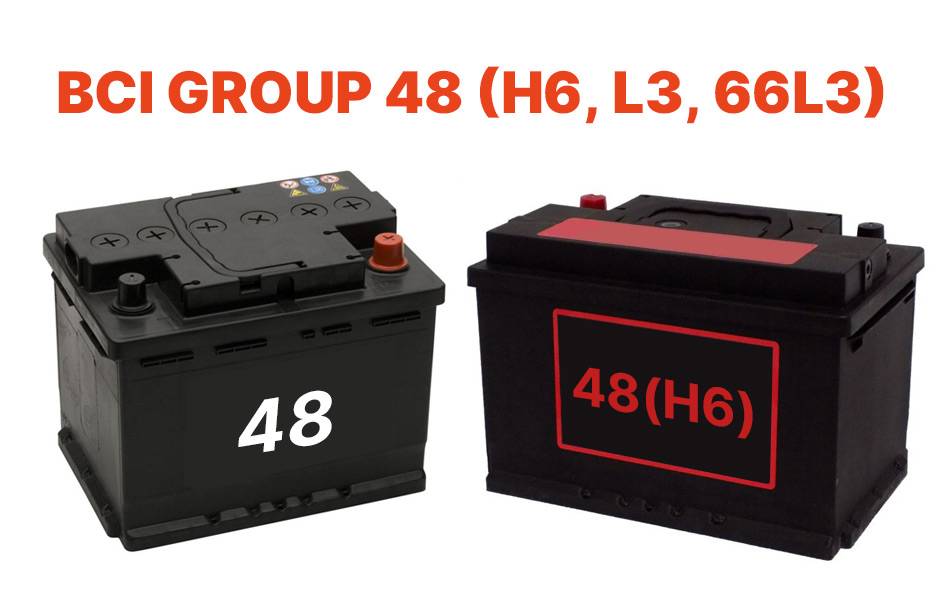
BCI Group 48 batteries, also known by codes H6, L3, and 66L3, are standardized automotive and industrial lead-acid batteries with common dimensions of approximately 11 x 6 7/8 x 7 1/2 inches. These batteries serve various vehicles and equipment, offering reliable power delivery, specific terminal layouts, and a balance of capacity and size for many heavy-duty applications.
What Are the Physical Dimensions of BCI Group 48 (H6, L3, 66L3) Batteries?
BCI Group 48 batteries feature dimensions around 278 mm (11 in) length, 175 mm (6 7/8 in) width, and 190 mm (7 1/2 in) height. This size corresponds closely with DIN H6, L3, and EN 66L3 battery standards, allowing interchangeable use across these formats. This physical uniformity facilitates replacement compatibility in many cars, trucks, and equipment.
Physical Dimensions Chart for Group 48 Batteries:
| Dimension (inches) | Dimension (mm) |
|---|---|
| Length | 11 |
| Width | 6 7/8 |
| Height | 7 1/2 |
How Do the Codes H6, L3, and 66L3 Correspond to BCI Group 48 Batteries?
The codes H6, L3, and 66L3 are alternate designations from different standards: H6 is the SAE code, L3 corresponds to DIN, and 66L3 to the European EN standard. All refer to batteries with similar physical sizes and terminal placements, meaning these are effectively equivalent in size and compatible for the same applications as BCI Group 48 batteries.
What Are the Electrical Specifications of Group 48 Batteries?
Typical Group 48 batteries operate at 12 volts and offer cold cranking amps (CCA) ranging from about 600 to 750, with amp-hour (Ah) capacities between 65 and 75 Ah, balancing high engine start power and moderate energy storage. Variations depend on manufacturer, battery type (flooded, AGM), and application needs.
Which Vehicles and Equipment Typically Use Group 48 Batteries?
Group 48 batteries commonly power mid-to-large passenger vehicles, light trucks, SUVs, and some marine or industrial equipment. This group size fits many GM, Ford, Dodge SUVs, and commercial vehicles requiring larger battery capacity and stable power delivery.
How Are the Terminals Configured on a Group 48 Battery?
Group 48 batteries generally feature top post terminals with the positive terminal on the right side when the battery is facing you. Terminal placement is standardized to ensure proper polarity and easy installation, reducing errors during replacement.
What Are the Key Differences Between Group 48 and Group 98R Batteries?
Although similar in width and height, Group 98R batteries are approximately 5 mm longer in length than Group 48. Group 98R may offer higher capacity or different terminal layouts, so confirming exact fit and polarity is crucial when substituting these sizes.
How Do I Select the Correct Replacement Battery in Group 48 Size?
When selecting a replacement Group 48 battery, verify physical dimensions, terminal placement, CCA rating, and Ah capacity to match or exceed OEM specifications. Consider maintenance needs (AGM vs flooded), warranty, and brand reputation. Always consult vehicle manuals or authorized dealers.
What Are Common Applications for Group 48 Batteries?
Besides automotive use, Group 48 batteries are employed in backup power systems, marine applications, and some industrial equipment that require standardized 12V power sources with moderate to high capacity in a compact form factor.
How Long Can I Expect a Group 48 Battery to Last?
Typical lifespan for Group 48 batteries ranges from 3 to 5 years with proper maintenance, though factors like climate, usage patterns, and battery type (AGM vs flooded) influence longevity. Performance declines gradually before failure.
What Are Best Maintenance Practices for Group 48 Batteries?
Maintain Group 48 batteries by keeping terminals clean and tight, checking electrolyte levels if applicable, avoiding deep discharges, and ensuring regular charging. Use compatible chargers and store batteries in moderate temperatures to maximize service life.
Where Can I Purchase Authentic BCI Group 48 Batteries?
Authorized automotive parts retailers, battery specialty stores, and reputable online dealers are reliable sources for authentic Group 48 batteries. Purchasing from trusted brands with warranty is recommended to ensure quality and performance.
How Does Battery Construction and Quality Affect Group 48 Battery Reliability?
Build quality, including plate composition, separators, and electrolyte formulation, significantly impacts battery durability, charge retention, and cold start performance. Premium construction with enhanced corrosion resistance and advanced materials extends reliable service life.
Can Redway Power Provide High-Quality Lithium Battery Alternatives to Group 48 Batteries?
Redway Power, with extensive OEM experience, offers custom lithium battery packs that can replace traditional Group 48 lead-acid units. These lithium alternatives deliver longer cycle life, lighter weight, and maintenance-free operation suitable for automotive and industrial applications.
How Do Environmental Factors Impact the Lifespan of Group 48 Batteries?
Extreme temperatures, frequent deep discharges, and poor charging habits accelerate battery aging. Hot climates especially degrade lead-acid chemistry faster, emphasizing the importance of climate-appropriate battery selection and environmental care to extend usable life.
Group 48 vs. 98R Battery Size Comparison Chart
| Battery Group | Length (mm) | Width (mm) | Height (mm) | Notes |
|---|---|---|---|---|
| Group 48 | 278 | 175 | 190 | Standard size |
| Group 98R | 283 | 175 | 190 | Slightly longer |
Redway Power Expert Views
“At Redway Power, our 13 years in advanced lithium battery manufacturing underscore the shifting landscape from traditional lead-acid to high-performance lithium solutions,” explains a Redway Power battery engineer. “We customize lithium battery packs matching Group 48 specifications, ensuring customers receive lighter, longer-lasting, maintenance-free power with superior efficiency. Our MES-driven production guarantees consistent quality tailored to demanding automotive and industrial markets.”
Conclusion
BCI Group 48 (H6, L3, 66L3) batteries serve as a reliable, standardized battery size widely used in automotive and industrial contexts. Understanding their physical dimensions, electrical capacities, terminal layouts, and equivalents helps users select ideal replacements and maintain operational efficiency. Advances in battery technology, including lithium alternatives from manufacturers like Redway Power, offer enhanced performance prospects tailored to evolving needs.
Frequently Asked Questions (FAQ)
What are the dimensions of a BCI Group 48 battery?
Approximately 11 x 6 7/8 x 7 1/2 inches (278 x 175 x 190 mm).
Are H6, L3, and 66L3 batteries the same as Group 48?
Yes, these codes refer to compatible standards with very similar dimensions and uses.
Which vehicles typically use Group 48 batteries?
Mostly mid-to-large SUVs, trucks, and some industrial or marine equipment.
Can I substitute a Group 98R battery for a Group 48?
While similar, Group 98R is slightly longer; check fit and terminals before substituting.
Does Redway Power offer lithium batteries as an alternative to Group 48?
Yes, Redway Power provides custom lithium OEM battery packs compatible with Group 48 applications.


